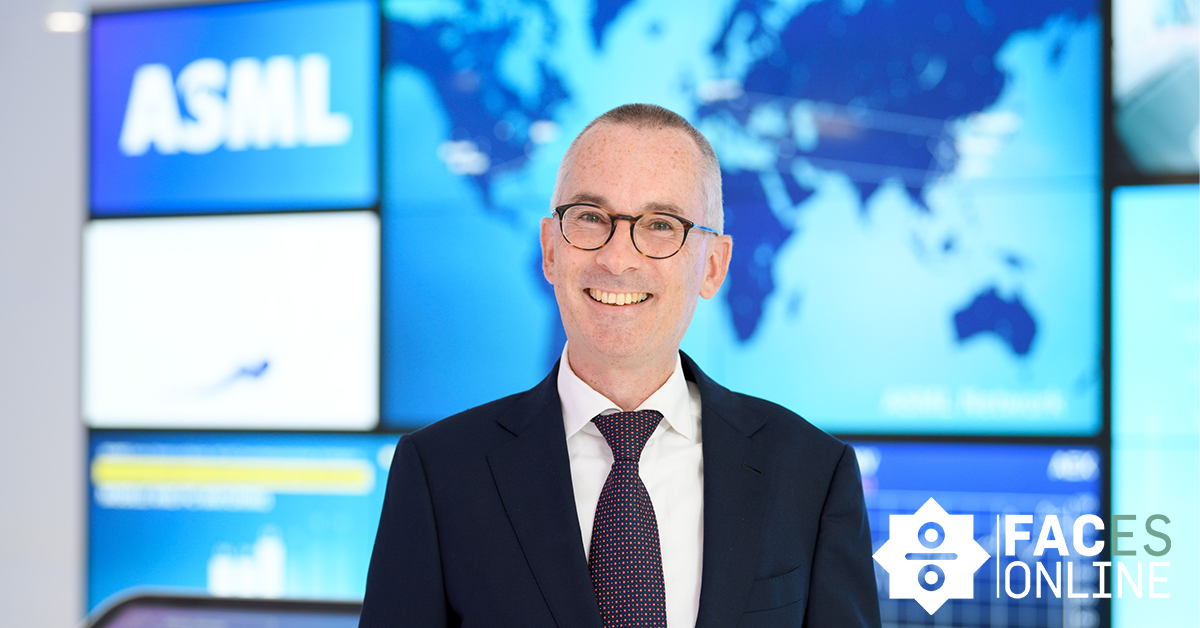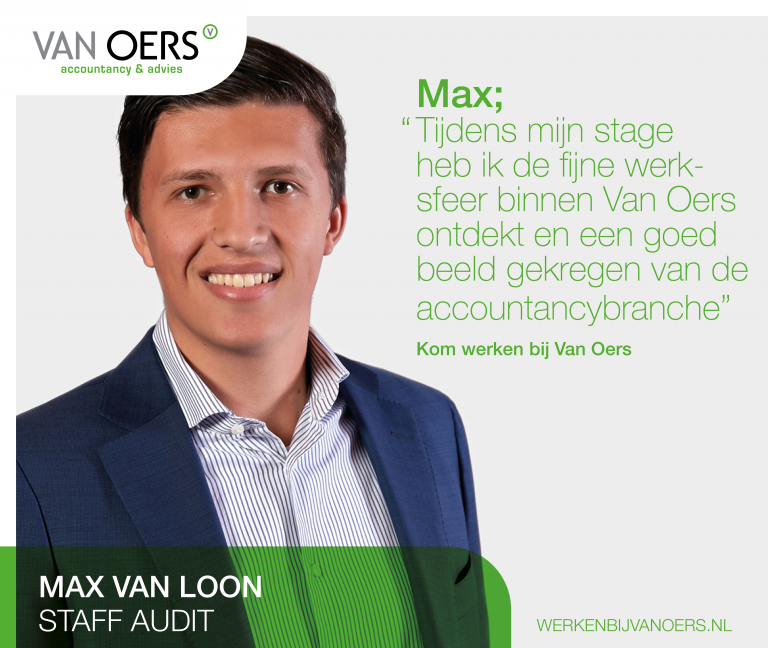For the Dutch version, click here
Roger Dassen was born and raised in Kerkrade, South Limburg. In 1988, he completed his studies in Business Economics in Maastricht and then joined Deloitte. Here stayed with Deloitte for 30 years, eventually becoming CEO of Deloitte Netherlands and Vice Chairman of Deloitte Global. Roger is married to Petra Dassen (Mayor of Kerkrade) and together they have two children and two dogs. After years of traveling the world for Deloitte, and living in Los Angeles and New York, he left the Accounting profession behind and took on the role of CFO at ASML in 2018.
You have lived and worked abroad for several years. Have you encountered major differences between the Netherlands and other countries?
I can settle down very easily, no matter where I am. I felt at home in New York when I lived there for seven years, but I also felt very much at home in the west of the country and in Limburg. There definitely are differences, there’s no doubt about that. What I think is very important is to realize that there are no qualitative differences. Life in New York is not better than in Kerkrade, it’s just different.
In New York, for example, I greatly enjoyed the cultural diversity of the city and the energy that exists 24/7. In Los Angeles, on the other hand, I appreciated the creativity and the more relaxed environment. Every environment has its charm and I think it is an art to recognize that charm, accept it, and enjoy it to the max of your ability. I love having operated in so many different environments, but it’s definitely not like I’m going back to Kerkrade now thinking, ‘how can someone who was happy in New York, be happy in Kerkrade?’
Living and working abroad definitely has its advantages. Especially Recognizing differences in cultures and acknowledging that different environments all come with their own advantages and disadvantages, I do think is very important. I would also advise anyone to do an exchange or something similar fairly early in their career because it is an enrichment to work in a different environment.
Why did you choose for a career as a Chartered Accountant?
Actually, I always wanted to study classical languages, because I absolutely loved Latin and Greek. According to my teacher, however, there was no longer any money to be made from it. At that time courses on classical languages in highschool were almost abolished in the Netherlands, so the question was what I could do if I had actually finished studying Greek and Latin.
At the time, my father worked for the tax authorities and he came home with some brochures about accounting, so that’s what I started doing. I really enjoyed getting to know companies and all different aspects of them, because that’s the fun of accountancy. You get to know a lot of different companies in a short time, and also a lot of different parts of companies. This diversity within accountancy is also the attraction of the profession. Many people start at an accounting firm and then leave after a few years to go and work for a company internally.
“We quickly agreed with the complete Deloitte team that I just couldn’t put down my signature. I can tell you that it was an intense period.”
Not approving Ahold’s financial statements is a well-known fact of your career, and the aftermath was huge. How did you experience this period?
I was convinced that this was the right thing to do. We quickly agreed with the complete Deloitte team that I just couldn’t put down my signature. I can tell you that it was an intense period. It was emotionally draining and the time commitment was also enormous. I was regularly working 16-20 hours a day during that period. I was not alone of course, a whole team was involved in this case and everyone wanted to get to the bottom of it.
Just know, when you do something like this, it haunts you all your life. This party started in 2002 and I won the last court case against me personally on my 51st birthday, on September 22, 2016, and with that, after 14 years, the book was closed for me. Pretty bizarre having to defend yourself in a case where you are sure you made the right decision. It was an intense and strenuous period, but also incredibly educational.
Why did you leave Deloitte, after reaching the top? And how did you end up at ASML?
The trigger for this decision was that I wasn’t at home a lot. My wife was mayor in northern Limburg, but I still had an apartment in New York. I was in the Netherlands on the weekends. I had an intercontinental flight almost every week. There comes a time when you have to ask yourself whether you are still fulfilling the role you have in your family well enough. That’s what eventually led me to leave Deloitte. I was having a great time there, but the intrusion into my private life was too great.
Then, as far as I am concerned, the most beautiful company in the Netherlands knocked on the door and it was settled very quickly. ASML is a wonderful company and it takes you completely out of your comfort zone. Whereas at Deloitte, I knew pretty much every little hole and every part of the company, at ASML I had to start again from scratch. You hardly know anyone, you don’t know the culture, the technology, the customers, and the company and I can tell you that this steep learning curve is also a great gift. I am very curious by nature and when you are pulled out of your comfort zone like that, it is wonderful.
Do you have the ambition to eventually succeed Peter Wennink as CEO, should the opportunity arise?
The most important career advice I can give is: never do career planning. What I particularly mean by this, is that you should never take a job thinking that you are then ideally positioned for the next job. That is a colossal mistake. I have always gone for jobs that more or less came my way, mainly because I did my existing role with passion and conviction and therefore might have stood out.
I didn’t take this role with the thought of becoming CEO. That’s not how you should be in the game at all. I think what I’m doing now is really a world-class job. I’m really enjoying it and we’ll see what comes next.
“So it’s not just about the interests of the shareholders, but if I look at ASML, it’s also our customers, suppliers, employees, governments, and ‘society at large’.”
In what ways do you expect the CFO profession to change in the future?
I think you will see that the CFO will increasingly become someone who has to look at the various interests of the stakeholders. So it’s not just about the interests of the shareholders, but if I look at ASML, it’s also our customers, suppliers, employees, governments, and ‘society at large’. Knowing the interests of all these parties is a very important role of the CFO to the outside world.
Inwardly, I think you’ll see that the CFO increasingly needs to be closer to the business. It is important to look at all the support functions in a company, such as Finance, IT, HR and you name it. You have to bring all these worlds together and prevent loose islands from forming in the support functions.
What is the best way for today’s students to stand out from the crowd?
As a student, you need to learn about the company you want to work for, to begin with. It is essential that people really understand the business. Intrinsic motivation is very important to me. You have to radiate this.
I also think that you have to be unique and excellent in a certain area, this can be anything. You have to have something that you can say: that really is an asset. You can excel on content, which is reflected in the grade list and the way you talk about a subject. However, I also think you can excel in extra-curricular activities. Excellence can also be a focus. So it is also possible that you may underperform in other areas. In fact, I prefer that to someone who performs “middle of the road” everywhere. Of course, it is important that you can develop yourself broadly, but you must be able to prove that you can focus and excel in certain areas. If you can develop that uniqueness, then you can brand yourself as someone who does something extra. That alone makes you attractive to an employer.

















